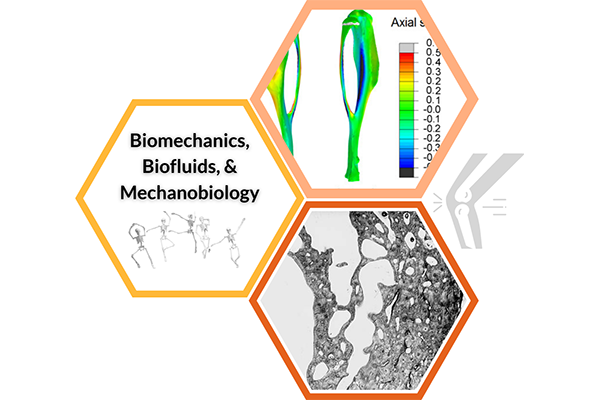Biomechanics, Biofluids, & Mechanobiology

Biomechanics, Biofluids, & Mechanobiology represent an interdisciplinary field that applies principles of mechanics to the study of biological systems across multiple scales.
In practice, living tissues and their components exhibit a strong sensitivity and response to mechanical forces. Emerging evidence suggests that even slight forces, strains, or changes in material properties can have a profound impact on cell behavior and tissue function (e.g., the mechanical stiffness of a substrate can regulate stem cell differentiation). Therefore, it is crucial to develop accurate tools capable of assessing the mechanical properties of biological systems with high precision. However, due to the intricate geometry and constitutive nature of tissues, cells, and proteins, devising, applying, and validating approaches to describe the mechanical response of these systems poses significant challenges. Our faculty conduct research at the interface of mechanical engineering and biology, unraveling the mysteries of living organisms and uncovering novel approaches to enhance human health. By integrating principles from both disciplines, we aim to deepen our understanding of biological systems and pave the way for innovative advancements in healthcare.
Within the MIE department at Northeastern, we have a strong, talented group of researchers dedicated to Biomechanics, Biofluids, & Mechanobiology.